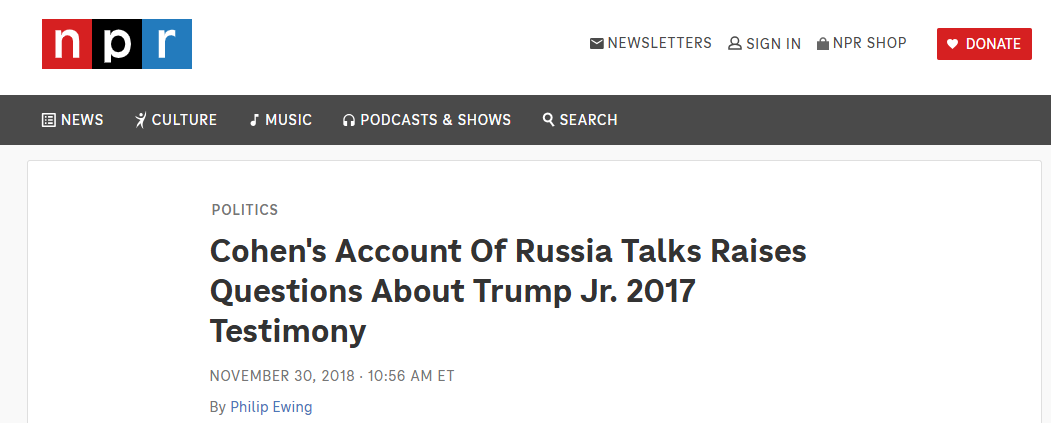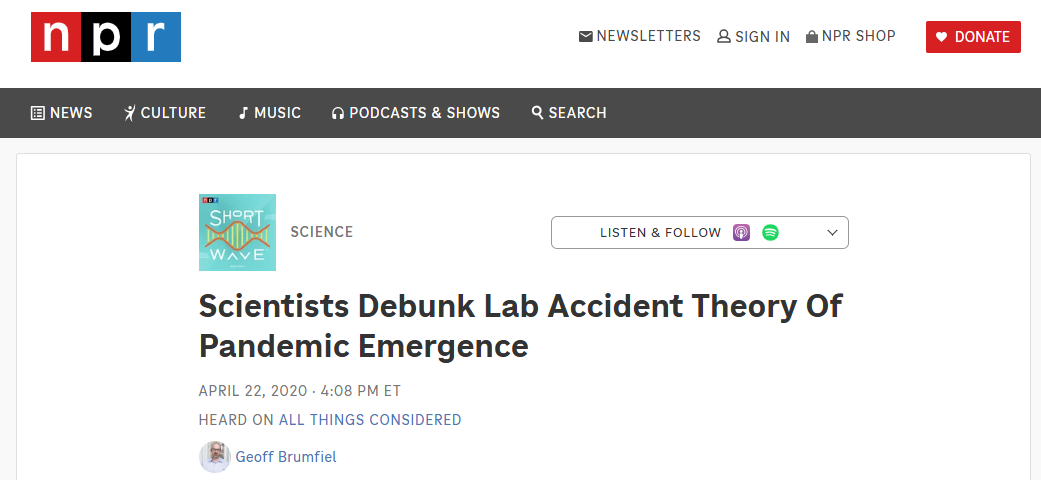National Public Radio CEO Katherine Maher defended her network against longstanding allegations of political bias during an appearance on CNN News Central Thursday, asserting that NPR is a non-partisan outlet despite years of criticism and scrutiny over its editorial choices and public statements by its leadership.
“When it comes to the accusation of bias, I would start, as I always start out by saying, that we of course are a non-partisan organization and we want to serve and are required to serve the entirety of the American public,” Maher said.
Trump’s Sovereign Wealth Fund: What Could It Mean For Your Money?
Her comments came the same day the U.S. Senate passed President Donald Trump’s $9 billion rescissions package, which includes significant cuts to foreign aid and eliminates appropriated funding for a public broadcasting nonprofit that supports both NPR and PBS.
The timing of Maher’s remarks drew renewed attention to NPR’s editorial record and the public statements of its current CEO. Prior to her appointment, Maher made several controversial statements about Trump, including calling him a “racist” in 2018 and a “deranged racist sociopath” in 2020.
What is that deranged racist sociopath ranting about today? I truly do not understand.
— Katherine Maher (@krmaher) May 14, 2020
This Could Be the Most Important Video Gun Owners Watch All Year
In another post that year, she wrote that the United States is “addicted to white supremacy.”
Critics have long cited NPR’s editorial decisions as evidence of partisan leanings.
In 2020, the network publicly refused to cover the Hunter Biden laptop story during the final weeks before the presidential election, saying they did not want to “waste the listeners and readers time on stories that are just pure distractions.”
In 2018, NPR falsely reported that Donald Trump Jr. lied to the Senate Judiciary Committee about discussions involving a Trump Tower project in Moscow.

The report was later revealed to be based on incorrect information about a different project entirely.
During the COVID-19 pandemic, NPR dismissed the lab leak theory, stating that scientists had “debunked” the idea that the virus originated in a Wuhan, China lab.

In March 2020, the network also halted coverage of President Trump’s coronavirus task force briefings in the Seattle area, a move that drew criticism from listeners in the region.
NPR has also drawn attention for unusual reports suggesting that topics like country music and birds are “racist,” and has continued to promote narratives alleging that Trump’s 2016 campaign colluded with Russia.
(2/5) NPR reported that country music and birds are racist, told American people to stop eating beef, and promoted the Russia-gate conspiracy.
No person with a brain above a single-celled organism would call these articles fair and balanced. pic.twitter.com/vpCl2Y74TI
— John Kennedy (@SenJohnKennedy) July 16, 2025
The network has also published pieces questioning whether men have any biological advantage over women in sports—claims that Republican Sen. John Kennedy of Louisiana criticized in remarks on the Senate floor.
(4/5) NPR reported that there is no evidence that biological men have an unfair advantage over biological women in sports.
NPR also called America’s interstate highways racist.
I did not know our highways were racist. I thought they were concrete, but not according to NPR. pic.twitter.com/O1vCqlc4JY
— John Kennedy (@SenJohnKennedy) July 16, 2025
In April 2024, longtime NPR editor Uri Berliner wrote in The Free Press that NPR had strayed from its journalistic mission by pushing the Russia collusion narrative and prioritizing identity-based reporting.
Berliner stated that the network lacked “viewpoint diversity” and had internal agreement about editorial direction, especially regarding race and politics.
Asked Thursday about Maher’s claim that cuts to NPR funding could pose a “risk” to public safety, White House Press Secretary Karoline Leavitt responded by calling NPR and PBS “propaganda voices” for the political left.
🚨 The CEO of NPR is claiming that the cuts to their network could be “a real risk to the public safety of the country.”@reaganreese_: “Can you respond to these concerns?”
LEAVITT: “These [NPR & PBS] are not honest news organizations. These are partisan, left-wing outlets that… pic.twitter.com/mixsRRoq6S
— Daily Caller (@DailyCaller) July 17, 2025
The Trump administration’s rescissions package, approved by the Senate, effectively ends federal funding streams that have supported public broadcasting for decades.
Additional cuts in the package also target overseas aid and non-military discretionary spending that the White House described as “wasteful” or “duplicative.”

![NPR CEO Asked for Proof of Political Bias and Oh Boy Did Senator Kennedy Deliver [WATCH]](https://www.right2024.com/wp-content/uploads/2025/07/NPR-CEO-Asked-for-Proof-of-Political-Bias-and-Oh-750x375.jpg)












